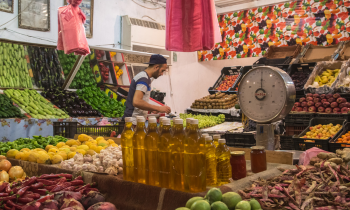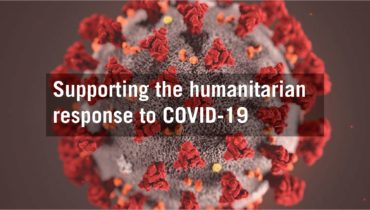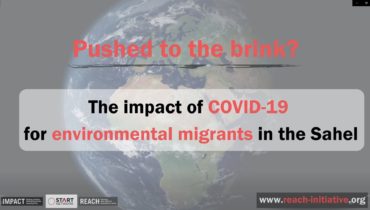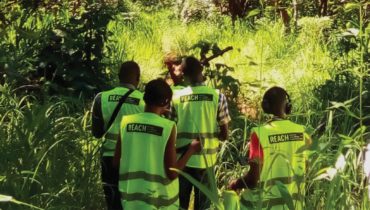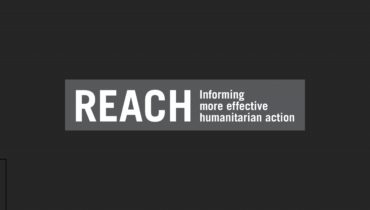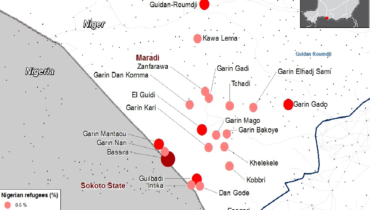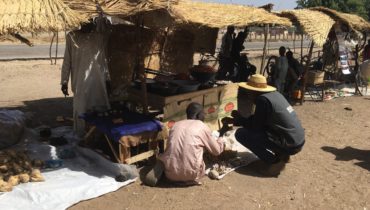Nigeria: REACH study finds cash is the most appropriate food assistance modality in Konduga
23 January 2018

Food vendors in Konduga, Nigeria. ©REACH/2017
Food insecurity is one of the greatest challenges North Nigerian populations have to face. As of October 2017, 30% of the population in Borno State faced critical food insecurity situations.[1] Eight years of conflict led to the displacement of farmers and pastoralists, preventing them from crop cultivation and grazing. In this context, humanitarian actors have sought to provide vulnerable populations with food aid through both in-kind food distributions and cash-based food assistance.
To determine the most appropriate food assistance modality in the town of Konduga in Borno State, REACH in partnership with the Nigeria Food Security Sector conducted an assessment focusing on household preferences and vendors’ capability to respond to an increased demand. REACH worked closely with operational food security partners to analyse data collected through over 490 interviews of households, food vendors and heads of traders, as well as 13 focus group discussions.
Overall, the assessment found that food aid in Konduga town should be distributed through cash-based modalities rather than in-kind food distributions. Findings highlight that 58% of households reported a preference for cash-based food assistance, and that over 90% of food vendors faced neither security nor transportation challenges preventing them from increasing their supply of food items.
In addition, REACH findings highlight that freedom of choice and perceptions of reliability were key factors in shaping household preferences between food assistance modalities. Of those preferring cash-based assistance, 82% reported they did so because of the freedom to choose their preferred food items or brands, while 42% reported the ability to allocate expenditures freely between food and non-food needs. In focus group discussions, participants frequently mentioned past difficulties that had led them to disfavour certain modalities, such as long waiting times in food distributions and challenges in operating mobile money technology (used to transfer money via mobile phones).
This assessment provides an evidence-based approach for determining the best way to provide food aid to vulnerable populations and suggests that humanitarian actors in Konduga should favour cash-based food assistance modalities. While the findings cannot be generalised outside of the town of Konduga, the approach could be adapted to other locations to better inform humanitarian actors and policy makers’ decisions on how to deliver appropriate aid.
[1] http://fscluster.org/nigeria/document/cadre-harmonise-fiche-results-analysis
Access to REACH’s Cash Suitability Assessment for Food Assistance in Konduga available in full at this link.


